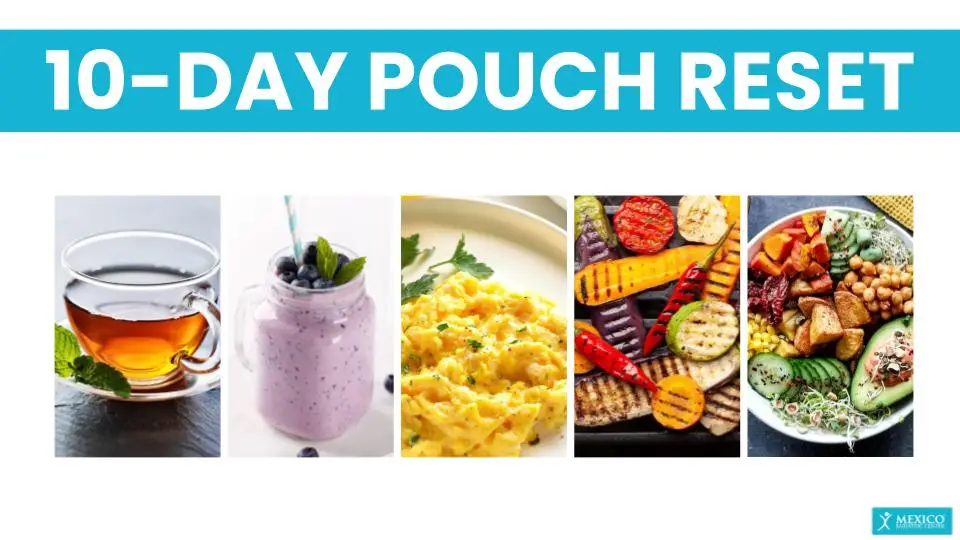Can You Lose 10 Pounds in Two Weeks?

Can you lose 10 pounds in two weeks? This question has been on the minds of many individuals who are seeking to shed weight quickly, perhaps for an upcoming event or simply out of a desire for change. The idea of losing such a significant amount of weight in a short period can be enticing, and various diets, plans, and fitness regimes claim that this feat is achievable. However, it is essential to scrutinize these claims to understand what might actually happen during such a rapid weight loss journey.
In our exploration of this topic, we will examine the science behind weight loss, effective methods for achieving quick results, the importance of nutrition and hydration, as well as the ethical considerations and mental health implications involved in adopting extreme weight loss strategies. By the end of this article, we hope to provide a balanced perspective on whether losing 10 pounds in just two weeks is indeed possible or merely a fleeting dream.
Understanding Rapid Weight Loss

When we delve into the realm of rapid weight loss, one must grasp the biological and physiological factors that come into play. Rapid weight loss often stems from a combination of water loss and glycogen depletion rather than an actual reduction in body fat.
Can You Lose 10 Pounds in Two Weeks – Biological Mechanisms at Play

The human body works in complex ways when it comes to energy storage and expenditure. When you engage in caloric restriction, your body begins to use up its glycogen stores, which are primarily found in the muscles and liver. Glycogen is a polysaccharide composed of glucose units, and it is stored with water—approximately three to four grams of water for every gram of glycogen.
So, when you embark on a strict diet, not only do you deplete glycogen, but your body also releases the water bound to it. This can lead to an abrupt drop in weight on the scale, creating the illusion of substantial fat loss. However, it’s crucial to recognize that this initial reduction is temporary and doesn’t equate to sustainable fat loss.
Moreover, if the caloric deficit is too extreme, the body may resort to breaking down muscle tissue for energy—a process known as catabolism. Losing lean body mass can negatively affect metabolism, making it harder to maintain weight loss over time.
The Role of Water Weight

Water weight comprises a significant portion of the initial weight loss observed when someone attempts to lose weight rapidly. Fluctuations in hydration levels can impact scale readings dramatically. Factors such as salt intake, carbohydrate consumption, and even hormonal changes can lead to increased water retention, which can mask true fat loss.
Many rapid weight-loss strategies, including crash diets or juice cleanses, often manipulate water loss through extreme dietary restrictions. While diuretics or excessive exercise can further exacerbate this effect, it’s vital to underscore that shedding water weight does not translate to genuine health benefits.
Long-Term Implications

Rapid weight loss can set off a cascade of consequences that extend beyond the initial thrill of seeing lower numbers on the scale. Individuals may indulge in restrictive eating patterns, leading to nutrient deficiencies, fatigue, and irritability. Over time, the cycle of drastic dieting followed by regaining lost weight can result in psychological stress, feelings of failure, and potentially disordered eating habits.
Additionally, engaging in extreme weight loss approaches can foster an unhealthy relationship with food and body image. Therefore, understanding the underlying mechanisms of weight loss can empower individuals to make informed decisions about their health and wellness.
Methods That Promise Quick Results

Numerous methods claim to facilitate swift weight loss, luring individuals with the promise of immediate results. From high-intensity workouts to calorie manipulation strategies, each approach comes with its own set of advantages and drawbacks.
High-Intensity Interval Training (HIIT)

An increasingly popular method for those looking to accelerate their weight loss is High-Intensity Interval Training (HIIT). This workout style involves alternating between intense bursts of activity and short periods of rest or low-intensity exercises.
HIIT is appealing not only because it can burn a significant number of calories in a relatively short time frame, but it also has the potential to elevate metabolic rate long after the workout has concluded. The “afterburn” effect, scientifically known as excess post-exercise oxygen consumption (EPOC), contributes to continued calorie burning, making it an attractive option for those pressed for time yet eager to see results.
However, while HIIT can be effective, it may not be suitable for everyone. Beginners or individuals with existing health concerns should proceed cautiously and consider a more gradual approach to exercise. Additionally, incorporating recovery days is vital to prevent injury and ensure optimal performance.
Caloric Manipulation Strategies
Another popular strategy for rapid weight loss involves calorie manipulation techniques, such as intermittent fasting or flat-calorie diets. Intermittent fasting alternates between periods of eating and fasting, allowing the body to enter a state where it relies more on fat stores for energy.
While proponents argue that intermittent fasting can aid in weight loss and improve metabolic health, it’s essential to evaluate its practicality for long-term adherence. Many people find it challenging to maintain such rigid schedules, and reverting back to old eating habits may lead to regaining any lost weight.
Flat-calorie diets, which involve severe caloric deficits over short timeframes, often promise quick results. However, maintaining such a restrictive plan is likely unsustainable, and participants may experience negative side effects, including irritability, mood swings, and cravings.
Sustainable Change vs. Quick Fixes

Among the myriad of quick-fix approaches, there lies an undeniable truth: sustainable weight loss requires a lifestyle change rather than a temporary solution. While rapid weight loss can provide instant gratification, it ultimately leads to challenges in maintaining that progress when the extreme measures cease.
Shifting focus away from quick fixes toward holistic, long-term strategies can yield more beneficial results. A balanced approach to nutrition, regular physical activity, and positive self-care practices can lead to enduring changes in weight and overall well-being.
The Importance of Nutrition and Hydration

A pivotal aspect of successful weight loss revolves around the choices made regarding nutrition and hydration. While exercise plays a crucial role, the foundation of any weight loss journey rests on what fuels the body.
Nutrient-Dense Foods vs. Empty Calories
Choosing nutrient-dense foods over empty calories is essential for those aiming to lose weight effectively. Nutrient-dense foods, like fruits, vegetables, whole grains, lean proteins, and healthy fats, provide the body with essential vitamins and minerals while supporting satiety.
On the other hand, processed foods often contain empty calories—calories devoid of nutritional value. Relying on sugary snacks or fast food may yield initial satisfaction; however, these foods rarely sustain energy levels or promote lasting fullness. As a result, individuals may find themselves in a cycle of hunger and overeating, ultimately hindering their weight loss efforts.
Emphasizing a diet rich in whole foods fosters better health and encourages mindful eating habits. Practicing portion control while savoring meals can positively influence one’s relationship with food and reduce instances of emotional eating.
The Role of Hydration
Hydration should never be overlooked when discussing weight loss. Proper hydration supports overall health, aids digestion, and helps regulate appetite. Sometimes, feelings of thirst can be mistaken for hunger, prompting unnecessary snacking.
Drinking adequate water throughout the day can enhance energy levels and promote a sense of fullness, thereby reducing the likelihood of overeating. Furthermore, staying hydrated can mitigate the risks of dehydration and fatigue, especially during intense workout regimens.
Individuals looking to lose weight should strive to incorporate hydration strategies into their daily routines. Carrying a water bottle, setting reminders to drink water, or opting for herbal teas can all serve as gentle nudges towards better hydration habits.
Balancing Short-Term Goals with Long-Term Success
As individuals explore rapid weight-loss methods, it is essential to remain cognizant of the importance of transitioning to a balanced lifestyle once the initial goals have been achieved. While short-term tactics may help achieve quick results, embracing healthier, sustainable habits can secure lasting success.
It can be easy to become fixated on numbers and external validations; however, focusing on nourishing the body and nurturing a positive mindset surrounding food and fitness can create a more fulfilling journey. Embracing the principles of moderation, balance, and sustainability can pave the way for improved health and well-being, allowing individuals to thrive beyond the scale.
Ethical Considerations and Mental Health

Beyond the physical aspects of weight loss, it is vital to acknowledge the ethical implications and mental health considerations associated with promoting rapid weight-loss methods. Society often imposes unrealistic standards, pressuring individuals to conform to particular body ideals.
Societal Pressures and Body Image
The relentless pursuit of thinness can lead individuals to adopt dangerous behaviors, perpetuating a cycle of dissatisfaction with one’s body. Unrealistic portrayals of beauty in media continue to influence the perceptions of self-worth, particularly among women.
As a result, many individuals may feel compelled to engage in extreme weight-loss tactics. These methods can foster unhealthy relationships with food and contribute to disordered eating patterns. Instead of focusing solely on achieving a particular weight milestone, individuals should prioritize cultivating a healthy mindset and engaging in habits that promote overall wellness.
Encouraging Healthy Habits
Encouraging healthy habits over mere weight loss can significantly impact how individuals perceive their bodies and relationship with food. Embracing practices that promote self-love and acceptance can lead to a healthier outlook, fostering resilience against societal pressures.
Engaging in mindful eating, practicing gratitude, and celebrating non-scale victories can shift the focus from weight loss to holistic health. Developing a supportive community centered around health, fitness, and self-improvement can create an environment that fosters positive change.
Navigating Challenges with Empathy
Mental health must remain at the forefront of discussions surrounding weight loss. Understanding the emotional toll that extreme dieting can take on individuals allows us to navigate these conversations with empathy and compassion.
Acknowledging the complexities of weight loss ensures that we approach discussions with sensitivity, avoiding shaming language or perpetuating harmful stereotypes. Encouraging open dialogue about body image, healthy habits, and self-acceptance can pave the way for a more inclusive and supportive narrative surrounding health and wellness.
Conclusion

In summary, while the notion of losing 10 pounds in two weeks may seem attainable through extreme diets and rigorous workout routines, the process entails more intricacies and consequences than simply following a trend. Rapid weight loss often results from temporary water loss and muscle depletion rather than genuine fat loss, leading to short-lived results and potential harm to one’s mental and physical health.
Ultimately, embracing a sustainable, balanced approach to weight loss encompasses prioritizing nutritious foods, maintaining hydration, and integrating enjoyable physical activities into daily life. The emphasis should lie on cultivating healthy habits rather than fixating on numbers. Transitioning to a lifestyle centered around well-being can promote lasting change, enabling individuals to thrive both physically and emotionally.
While the allure of rapid weight loss is tempting, it is imperative to recognize that true health transcends the scale and is rooted in nurturing a positive relationship with oneself.





